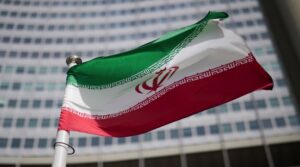“[N]o one told – your military advisors did not tell you, ‘No, we should just keep 2,500 troops. It’s been a stable situation for the last several years. We can do that. We can continue to do that,’” said ABC’s George Stephanopoulos to Mr Biden
“No. No one said that to me that I can recall,” the president responded. Both Mr Milley and Mr McKenzie contradicted the president and confirmed it was, in fact, their view.
“I stated consistently that my position was, if you go below 2,500 you’re going to look at a collapse of the Afghan military,” said Gen McKenzie.
White House press secretary Jen Psaki claimed at a press conference on Tuesday afternoon that despite the generals’ comments, Mr Biden had not misled Americans.
Senators Tim Kaine and Roger Wicker, a Democrat and Republican, respectively, hammered the officials on their inability to provide an answer to that question, and others complained that witness testimony had not been submitted with sufficient time for staff to adequately review statements made by the officials, in defiance of the committee’s procedures.
Sen Richard Blumenthal called on the Biden administration to appoint someone to be personally in charge of getting Americans out of Afghanistan. “We don’t have an estimate on the number [of Americans in Afghanistan] because nobody is in charge right now,” he asserted.
“We need an evacuation czar,” the senator said.
Repeatedly throughout Tuesday’s hearing, Mr McKenzie, Mr Milley, and Defence Secretary Lloyd Austin blamed the 2020 agreement struck between the Taliban and Trump administration in Doha as a chief reason for the destruction of morale that led to the former Afghan National Army’s quick collapse.
The only other event of significance portrayed by Pentagon officials at the hearing as having a similar effect on morale was the flight of ousted Afghan President Ashraf Ghani from the country in the hours leading up to the Taliban’s seizure of Kabul.
“Yes, senator, it did affect the morale of Afghan forces,” Gen Milley told Sen Jack Reed, the committee’s chairman.
“It’s my judgement that the Doha agreement did negatively affect the performance of the Afghan forces, in particular by some of the actions the government of Afghanistan was required to take as part of that agreement,” added Gen McKenzie.
The generals told the committee that the 2020 deal struck under the Trump administration largely shifted the burden of weathering Taliban attacks and the resulting casualties to Afghan security forces, while giving them the impression that US support was about to end.
Gen Milley used his opening statement and parts of his responses to various senators to once again issue a vigorous defence of his calls to Gen Li Zuocheng of the People’s Liberation Army. Mr Milley said he attempted to assure the Chinese general that the US was not looking to enter war with the superpower as a last act of former President Donald Trump’s presidency.
In particular, Gen Milley dismissed the idea that he himself was worried about the possibility of a US-led attack against Chinese forces, as had been reported by The Washington Post’s Bob Woodward and Robert Coast, who wrote that Gen Milley “was so fearful Trump might spark war” that he made “secret” calls to Gen Li.
“I know, I am certain, President Trump did not intend on attacking the Chinese and it is my directed responsibility – to convey presidential orders and intent. My job at that time was to de-escalate. My message again was consistent: calm, steady, deescalate. We are not going to attack you,” Gen Milley testified on Tuesday.
He pledged to give a list of names involved with the calls to Republican senators.
While anger directed at Mr Biden was palpable from Republicans throughout the hearing, very little of that same fury was left for Mr Trump. The former president not only initiated the withdrawal from Afghanistan but set an earlier deadline for the US pullout of troops, with no sign at the time that he planned to keep Bagram Air Base open or any military presence in the country whatsoever (though the former president has sought to whitewash his former position himself as of late too).
There was also little mention of the report from Peril, a book by Mr Woodward and Mr Costa, that Mr Trump had issued a memo on 11 November, days after losing the US presidential election, directing all US troops out of Afghanistan by 15 January, a move so shocking that Gen Milley reportedly confronted Mr Trump about it and talked him out of it.
Trump’s actions were pointed out repeatedly by Democrats on the panel who argued that the GOP was holding the two presidents to entirely different standards, such as one instance when Mr Reed referenced the opening statement from the ranking Republican member, Sen James Inhofe, who had claimed that it was Mr Biden who made negotiating with terrorists an element of daily life for the US government.
“The Doha Agreement represents direct negotiations with terrorists, and not just negotiations but an agreement with them that excluded the Afghan government and the allies who have been been fighting with us now since 9/11,” said Mr Reed.
ENDS






